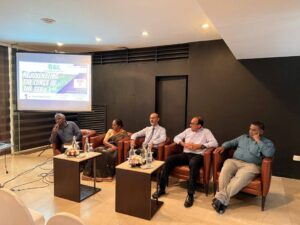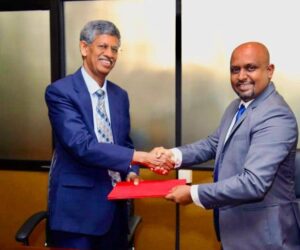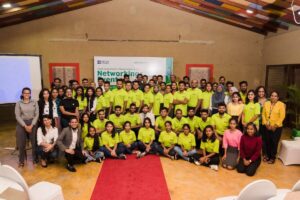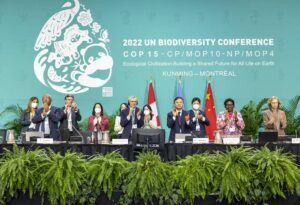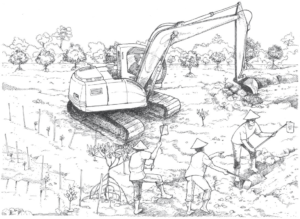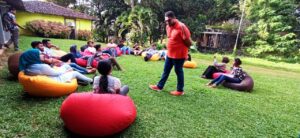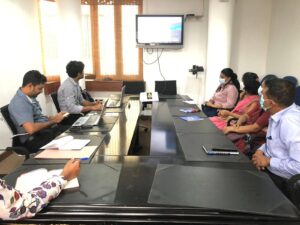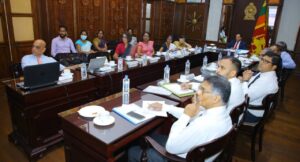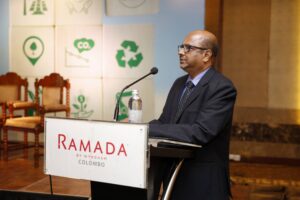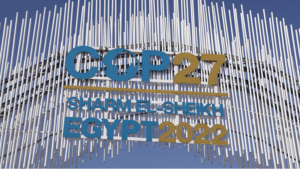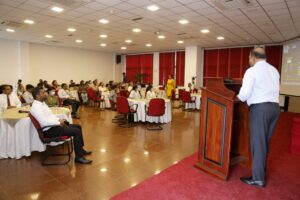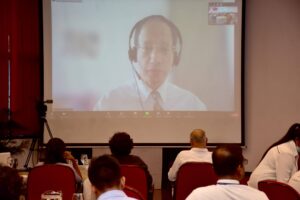Sri Lanka’s beaches are well-known worldwide for their elegance. The entire island is surrounded by beautiful coastal stretches of around 1,710 kilometers. Nevertheless, based on the anticipated volume of improperly handled garbage, Sri Lanka has been included among the top disposers of marine litter globally. (Meijer et al. 2021). Any persistent, manufactured, or processed solid material that is discarded, disposed of, or abandoned in the marine and coastal environment is referred to as marine litter. When plastic waste is not properly disposed of, it can enter the marine food chain, endangering the health and safety of coastal and marine species. Therefore, it is essential to take action to maintain our beaches safe, clean, and free of any risks so that visitors could relax and enjoy the beach stretches around the country.
The solid debris that washes up on our coasts frequently originates from both domestic and international sources. Rubber, plastic, glass, and aluminum-based materials are often collected from our beaches. These can be used wisely to create valuable resources through upcycling and recycling. To preserve a safer and more sustainable coastal environment for the benefit of all, immediate actions must be taken to ensure that our beaches are regularly inspected, cleaned, and managed responsibly. In this regard, in collaboration with the Marine Environment Protection Authority (MEPA), the Department of Samurdhi Development (DoSD), and member companies, BSL launched the programme called “Life to Our Beaches”. This programme has been designed as a Public-Private Partnerships (PPP), through which local communities also reap financial benefits by involving themselves in beach cleaning activities. They also derive an additional income by selling the recyclable waste collected.
With the participation of Patron Member DIMO, BSL operationalized a programme for the Dikovita beach stretch in Wattala. As the first step, BSL conducted technical training for the beach caretakers on collecting and identifying various types of plastics and other marine litter in the identified Dicovita stretch. The main objective of the training was to equip the beach caretakers with the necessary knowledge to identify the common types of plastic waste materials using an identification number. The 7 different kinds of plastics namely PET, HDPE, PVC, LDPE, PP, PS, and other plastic types were listed in order from 1 to 7. The packaging items and plastic bottles were utilized to demonstrate the common use of those plastic types.
The value of working as beach caretakers was recognized in the training program. It is a crucial service that helps in protecting the country’s stunning beaches. They were also made aware of the value of the trash they were collecting from the beaches and how they might sell it to supplement their family’s income. During the session, it was emphasized the need of taking health and safety measures when picking up rubbish on beaches. They were advised to keep records of the monthly collection in terms of the type of waste materials for monitoring purposes.
The project will continuously monitor the progress of beach cleaning activities and support the recyclable waste collected towards composting, recycling, and safe disposal. The Beach Caretaker Program is a breakthrough local conservation effort that inspires communities to act to protect their environment from coastal pollution whilst leading to socioeconomic gains. The Beach caretaker program is a powerful illustration of how community-led conservation programs can create a significant positive impact and alter the bleak future of the planet. They also serve as a reminder that every action, no matter how small, can have a rippling effect.



